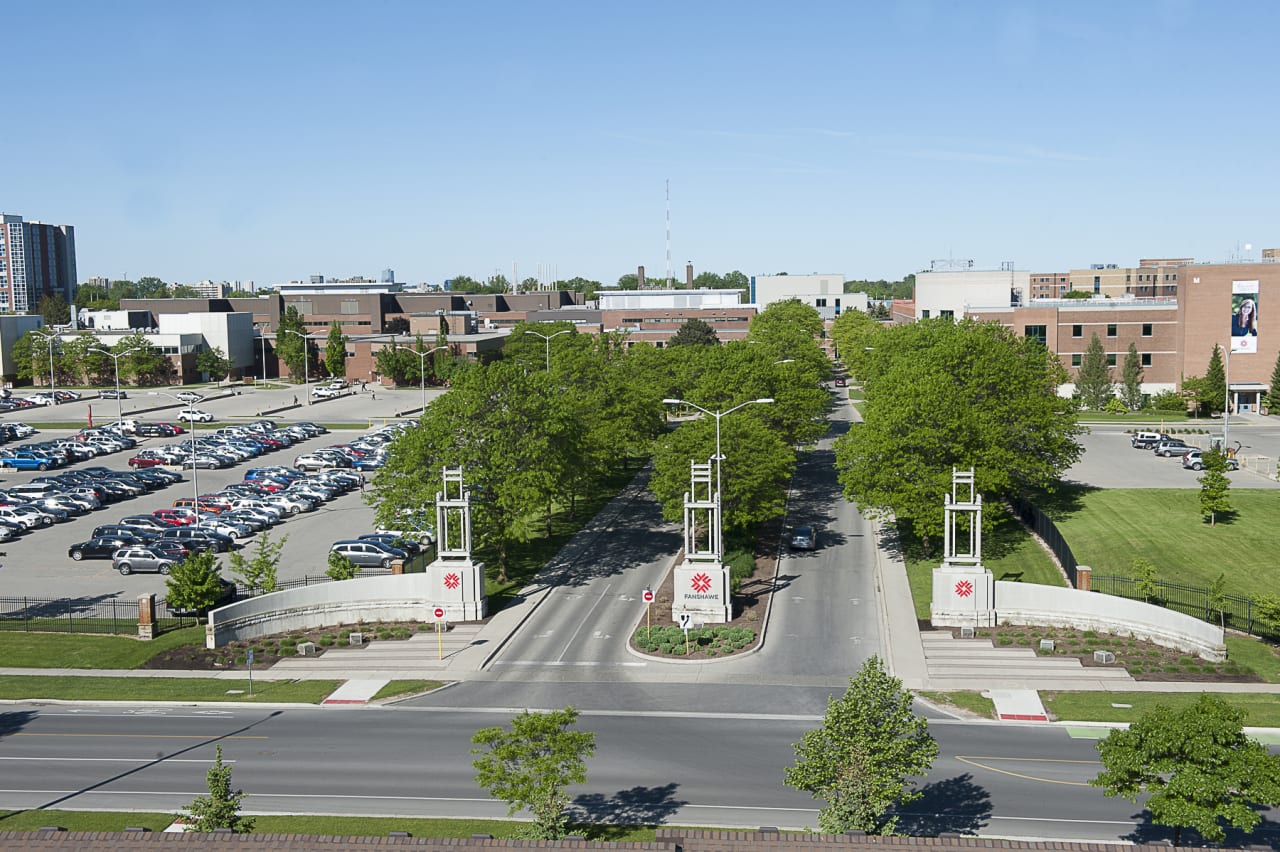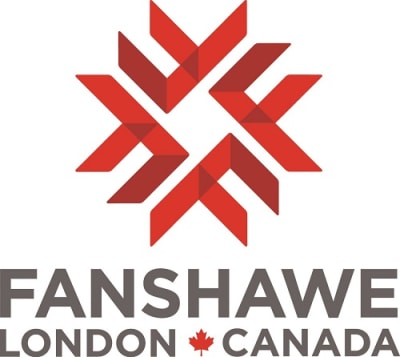
Advanced Diploma in Aviation Technology - Aircraft Maintenance and Avionics (Co-op)
Fanshawe College

Key Information
Campus location
London, Canada
Languages
English
Study format
On-Campus
Duration
3 years
Pace
Full time
Tuition fees
CAD 19,052 **
Application deadline
Request info *
Earliest start date
Request info
* equal consideration deadline. After that, we consider applicants on a first-come, first-served basis until programs are full
** total fee for Canadian students. $60,901.14 for international students
Scholarships
Explore scholarship opportunities to help fund your studies
Introduction
Aviation Technology - Aircraft Maintenance and Avionics is a three-year Ontario college advanced diploma program. Students will learn all aspects of aircraft maintenance including systems used in aviation. Students will also learn avionics training for service, repair, and maintenance. Graduates of this program can apply for maintenance or electrical category licensing which allows for a greater scope of career opportunities
Your Learning Experience
This program will cover all aspects of aircraft maintenance including systems used in general aviation, corporate, and transport category aircraft as well as helicopters.
The program will also include avionics training for service, repair, and maintenance of aircraft electrical and electronic systems such as communication, navigation, and data systems.
The interdisciplinary nature of this program, pairing maintenance and avionics, will provide students who successfully complete the Transport Canada requirements, with 24 months of accreditation towards a prospective Aircraft Maintenance Engineer License, six months over and above the existing Aircraft Maintenance diploma program currently approved by Transport Canada (TC-2013-08-4174).
The Aviation Technology - Aircraft Maintenance and Avionics (Co-op) Advanced Diploma is a Transport Canada-approved program (TC-2018-02-4248) that provides students with the knowledge and skills required to start a career in aircraft maintenance and/or avionics maintenance. This program will cover all aspects of aircraft maintenance including systems used in general aviation, corporate, and transport category aircraft as well as helicopters. The program will also include avionics training for service, repair, and maintenance of aircraft electrical and electronic systems such as communication, navigation, and data systems.
Training provides an opportunity for ab initio-trained Maintenance Technicians to log the appropriately required demonstrated skills in both maintenance and avionics, thereby permitting them to apply for 'M' (or Maintenance) or 'E' (Electrical or Avionics) category licensing, post apprenticeship.
This will permit graduates to apply for either 'M' or 'E' category licensing, which allows for a greater scope of work and greater flexibility to move between the disciplines of Maintenance and Avionics much more fluidly. Graduates may enjoy greater job prospects due to this breadth of knowledge and interdisciplinary background.
Gallery
Program Outcome
The graduate has reliably demonstrated the ability to:
- Service, test, troubleshoot, and repair aircraft and systems on large or small, fixed or rotary-wing aircraft in accordance with manufacturers' specified instructions, accepted aviation techniques/practices, and the requirements of Canadian aviation regulations.
- Evaluate fixed-wing and rotary aircraft structures and complete maintenance, assembly, fabrication, and structural repair work on large and small aircraft in accordance with technical manuals, standard practices, and standards of performance and safety.
- Perform scheduled and unscheduled inspections on aircraft structural, operational, environmental, communication, navigation, surveillance, and flight guidance systems to ensure they are in proper working order and meet standards of performance and safety.
- Remove, install, and configure airframe and avionics parts, components, and line replaceable units as part of unscheduled maintenance and out-of-phase tasks.
- Remove, install, and configure the aircraft power plant and accessories on both turbine and piston engines.
- Remove, install, configure, test, and evaluate the function and operation of the instrument, communication, navigation, surveillance, and flight guidance systems.
- Diagnose malfunctions and defects in aircraft systems, avionics systems, and related components using technical manuals, drawings, wiring diagrams, engineering orders, and standards of performance and safety.
- Evaluate component wear and fatigue using appropriate measuring devices to determine necessary repair or replacement tasks in order to maintain the aircraft’s airworthiness and safety.
- Complete airworthiness directives, manufacturers' service bulletin, and engineering modification tasks on aircraft systems, avionics systems, and structures.
- Dismantle and reassemble airframes, aircraft engines, and electrical and electronic systems for repair and overhaul.
- Interpret written instructions, schematics, manufacturers' specifications, technical drawings, manuals, and computer-based information while performing routine and unscheduled tasks.
- Maintain detailed inspection, repair, maintenance, and certification records and reports to meet industry regulations and logbook requirements.
- Perform all work in accordance with health and safety regulations, manufacturers' specifications, and Transport Canada guidelines.
- Evaluate, modify, and implement quality control and quality assurance procedures to meet organizational standards and requirements.
Admissions
Curriculum
Courses
Level 1
Take all of the following Mandatory Courses:
- AVIA-1064 ---- Shop Safety and Aircraft Tools
- AVIA-1025 ---- Aircraft Corrosion Control
- AVIA-1050 ---- Fixed Wing Aerodynamics
- AVIA-1065 ---- Aircraft Reciprocating Engines
- AVIA-1052 ---- Aircraft Propellers
- AVIA-1030 ---- Aircraft DC Electrical Systems
- COOP-1020 ---- Co-operative Education Employment Prep
- EDUC-1105 ---- Strategies for AME Communication
Level 2
Gen Ed - Take a 3-credit General Education elective course.
Take all of the following Mandatory Courses:
- AVIA-1031 ---- Aircraft Metallic Structure and Metallurgy
- AVIA-1066 ---- Hydraulic Controls/Emergency Equipment
- AVIA-1033 ---- Canadian Aviation Regulations
- AVIA-1035 ---- Rotary Wing Aerodynamics
- AVIA-1036 ---- Aircraft AC Electrical Systems
Level 3
Gen Ed - Take a 3-credit General Education elective course.
Take all of the following Mandatory Courses:
- EDUC-1105 ---- Strategies for AME Communication
- EDUC-1105 ---- Strategies for AME Communication
- EDUC-1105 ---- Strategies for AME Communication
- EDUC-1105 ---- Strategies for AME Communication
- EDUC-1105 ---- Strategies for AME Communication
Level 4
Gen Ed - Take a 3-credit General Education elective course.
Take all of the following Mandatory Courses:
- AVIA-1067 ---- AMO Management: Records and Inspections
- AVIA-1069 ---- Maintenance Techniques
- AVIA-1045 ---- Aircraft Turbine Engine Maintenance
- AVIA-1046 ---- Aircraft Starting and Indications
- AVIA-1070 ---- Avionics-Introduction
Level 5
Gen Ed - Take a 3-credit General Education elective course.
Take all of the following Mandatory Courses:
- AVIA-1058 ---- Avionics Digital Fundamentals
- AVIA-1006 ---- Avionics Radio Theory
- AVIA-1083 ---- Aviation Electronics
- AVIA-1017 ---- Aircraft Flight Instruments
- AVIA-1018 ---- Aircraft Internal Communications
Level 6
Take all of the following Mandatory Courses:
- AVIA-1062 ---- Aircraft Wireless Communications Systems
- AVIA-1020 ---- Aircraft Radio Navigation Systems
- AVIA-1063 ---- Aircraft Automatic Flight Control System
- AVIA-1022 ---- Avionics Installations and Standard Practices
- AVIA-1023 ---- Flight Line Maintenance Practices
Gen Ed - Electives
Take 12 General Education Credits -
Usually taken in Levels 2, 3, 4 and 5
Program Residency
Students Must Complete a Minimum of 37 credits in this program at Fanshawe College to meet the Program Residency requirement and graduate from this program
Career Opportunities
Career Information
Fanshawe’s Aviation Technician – Aircraft Maintenance program prepares graduates for a career with Canadian and international aircraft maintenance and aircraft manufacturing organizations. Students who successfully meet the Transport Canada requirements will achieve 18 months of approved basic training credit towards the 48 months of experience required to obtain a Transport Canada Aircraft Maintenance Engineer (AME) license, 'M' Category. Graduates will have the knowledge and experience to pursue their license in fixed-wing or rotary-wing aircraft in the M1 and M2 categories.
Did you know Fanshawe consistently ranks high in graduate employment rates among large colleges in Ontario?
Here are some examples of career opportunities for graduates of Fanshawe’s Aviation Technician – Aircraft Maintenance program:
Motor Pool Fleet Assistant
Assist the fleet coordinator and motor pool mechanic in the maintenance, readiness, fuel management, and scheduling of all motor pool vehicles and equipment.
Airport Flight Line Technician
Assist in the maintenance and safe operation of a municipal airport in accordance with government regulations, airport policies, and procedures.
Ramp Service Agent
Marshall aircraft during arrival and departure, unload passenger luggage, operate aircraft in-plane system, and assist flight crews.
English Language Requirements
Certify your English proficiency with the Duolingo English Test! The DET is a convenient, fast, and affordable online English test accepted by over 4,000 universities (like this one) around the world.